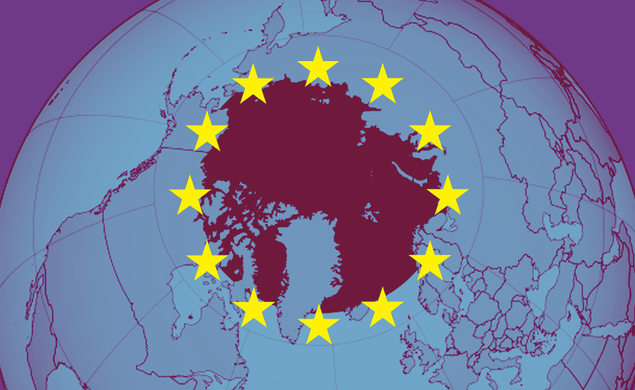Norway and the European Union: Arctic partners or rivals?

Since the EU became interested in Arctic affairs, its relationship with Norway – its closest neighbour to the north – has been one of paradoxes. But why?
At a recent European Parliament policy hub in Brussels, FNI researchers Andreas Raspotnik and Andreas Østhagen addressed the issue to an audience of the parliament’s internal experts, political groups and external think tanks more generally.
The most integrated outsider
Although not a member of the European Union, Norway has become tightly integrated over the years. While rejecting membership twice (referendums in 1972 and 1994), Norway belongs to the Single Market via the European Economic Area (EEA) Agreement, initially conceived as a ‘waiting room’ to full membership. Since membership has remained highly unlikely, the EEA Agreement today forms the backbone of Norway–EU relations. Most laws and regulations coming from Brussels therefore affect Norway.
the years. While rejecting membership twice (referendums in 1972 and 1994), Norway belongs to the Single Market via the European Economic Area (EEA) Agreement, initially conceived as a ‘waiting room’ to full membership. Since membership has remained highly unlikely, the EEA Agreement today forms the backbone of Norway–EU relations. Most laws and regulations coming from Brussels therefore affect Norway.
‘As such, the Norway–EU relationship in general is a paradox – neither in nor out – as Norway is highly integrated in the EU-system without a direct say in legislative processes,’ explains Østhagen.
Complex Arctic relationship
The burgeoning interest in the Arctic has, however, complicated the relationship even more. Since 2005, the Norwegian government has given priority to the High North, and has worked to involve the EU in Arctic issues. At the same time, Norway is sceptical of the Arctic-related steps taken by the Union.
‘Especially around 2006/7 Norway overestimated the Arctic awareness in Brussels and tried  to close that knowledge gap. However, with a more Arctic active EU, certain differences came to light. European views and opinions that challenge Norwegian sovereign rights or interests sometimes arise in Brussels-based debates. Today’s dispute over snow crab is just the latest case,’ says Raspotnik.
to close that knowledge gap. However, with a more Arctic active EU, certain differences came to light. European views and opinions that challenge Norwegian sovereign rights or interests sometimes arise in Brussels-based debates. Today’s dispute over snow crab is just the latest case,’ says Raspotnik.
Relevant reading: The European Union and the Geopolitics of the Arctic
Partners or rivals?
Despite minor quarrels, Norway’s relationship with the EU is very good. Norway and the EU see eye to eye regarding Arctic matters as well, from research to regional development, not to forget EU’s bid for observer status on the Arctic Council. Conflicting Arctic issues sometimes arise, however, requiring Norway to be present in Brussels to ensure that the EU understands the nuances of issues in the Arctic region.
‘Thus, describing Norway–EU relations as either a partnership or as rivalry is somewhat inaccurate, as it may in fact be characterized as both. Given Norway’s relationship with the EU in general, Norway is bound to be a close partner in a EUropean Arctic policy, whilst also posing as a rival on specific issues. The key, however, is that such issues are solved through dialogue and negotiations, while the everyday workings of the larger relations continue unhindered,’ Østhagen concludes.
Raspotnik and Østhagen were in Brussels to interview various EU actors on the Barents Sea snow crab dispute as part of the interdisciplinary research project Stockshift, involving marine biologists, international lawyers and political scientists. It is being run by the Department of Political Science at the University of Oslo.
Read more about the project here.
